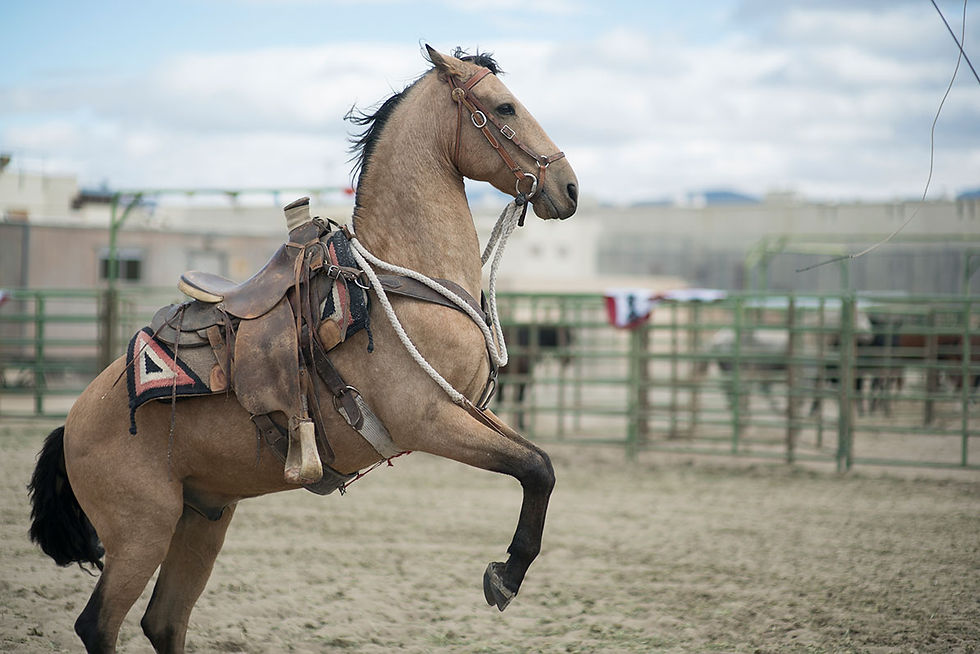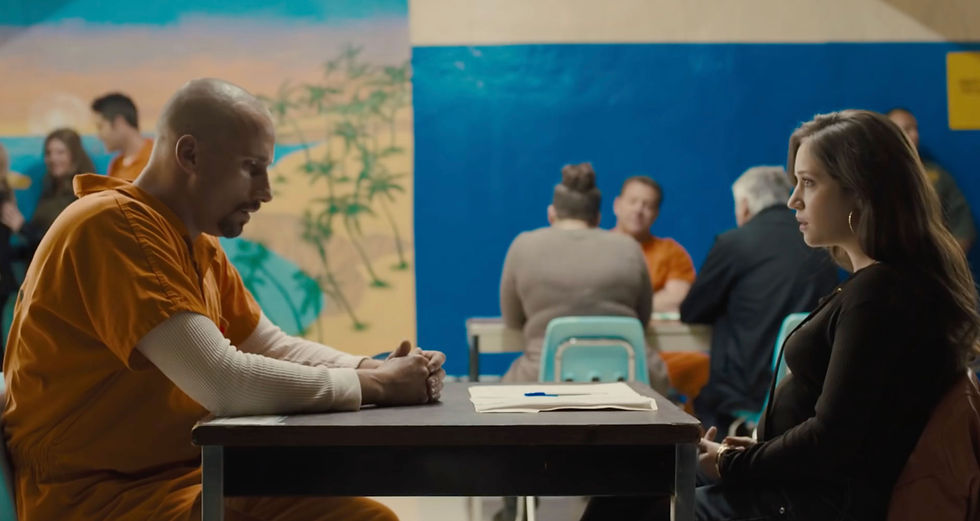The Mustang
- Ben Pivoz
- Apr 11, 2019
- 3 min read
Updated: Jul 12, 2021

The Mustang is an intimate character study about a man, shut off from the outside world both physically and emotionally, who finds purpose by bonding with a creature as wild as he is. It is a quiet story about guilt, acceptance and the possibility for our prison system to reform people. It is engaging, with a very strong performance and a compelling central relationship. The scenes between the two main characters are surprisingly affecting. It kept my interest, even though it does not dig quite as deep as it could have.
Roman has been incarcerated for twelve years. He mainly keeps to himself. After being transferred to a new prison, he is assigned to shovel horse manure in a program where inmates train mustangs for auction. Eventually, he is put together with the wildest mustang there. Working with it causes him to reevaluate his own life, including his relationship with his daughter.
The main draw here is the performance of Matthias Schoenaerts as Roman. From the first time we see him, he seems defeated. He is withdrawn, hopeless and going through the motions. When his daughter visits him, there is a distance separating them he just seems to accept. His true feelings do not come out until he is with the horse. Seeing this angry, trapped creature brings something out in him. Schoenaerts displays this transition in small ways. His power is in what he does not say. Then, when Roman’s cold exterior begins to break down a bit, and we see the broken man inside, his grief for the life he has destroyed comes forward.

His moments with the horse he names Marquis are so immediate, there can be nothing but honesty there. Roman leaves both his literal and metaphorical cell when he is training Marquis. The horse makes him remember what it is like to be alive. Nothing is forced or manipulated in those scenes. Co-writer/director Laure de Clermont-Tonnerre lets Schoenaerts and the movement of the animal tell the story. There is no artificial drama; just a man trying to work with a horse that does not want to be tamed. It is a simple story that works as a pretty natural metaphor for the protagonist’s life.
The Mustang (92 minutes without the end credits) succeeds mostly because of its star, its attention to the details of Roman’s existence and its focus on his story. It also gets a nice lift from the actors around him. Bruce Dern plays Myles, the man who runs the mustang program. He is good at portraying cranky, passionate men. Myles has great empathy toward the animals he is responsible for. He only has an issue with the prisoners if they mistreat the horses. Dern makes him a good man who wants Roman to succeed, but never turns Myles into a wise mentor. Jason Mitchell plays fellow inmate/trainer Henry, who helps Roman get comfortable with his new job. It is a cliché role, but Mitchell is likable in it. Gideon Adlon is Roman’s daughter. Their scenes together are very important and she suggests a world of backstory in a few short conversations.
The pace may be slow, but the movie never drags. Clermont-Tonnerre keeps the focus always where it needs to be: on the face of Matthias Shoenaerts as Roman struggles to find a reason to continue on. The relationship between man and animal fascinates me. The Mustang explores it with care. While its story does not have a profound conclusion, it is still a moving journey, well worth taking.
4 out of 5
Cast:
Matthias Schoenaerts as Roman
Bruce Dern as Myles
Jason Mitchell as Henry
Gideon Adlon as Martha
Connie Britton as Psychologist
Directed by Laure de Clermont-Tonnerre
Written by Mona Fastvold, Brock Norman Brock and Laure de Clermont-Tonnerre

Comments